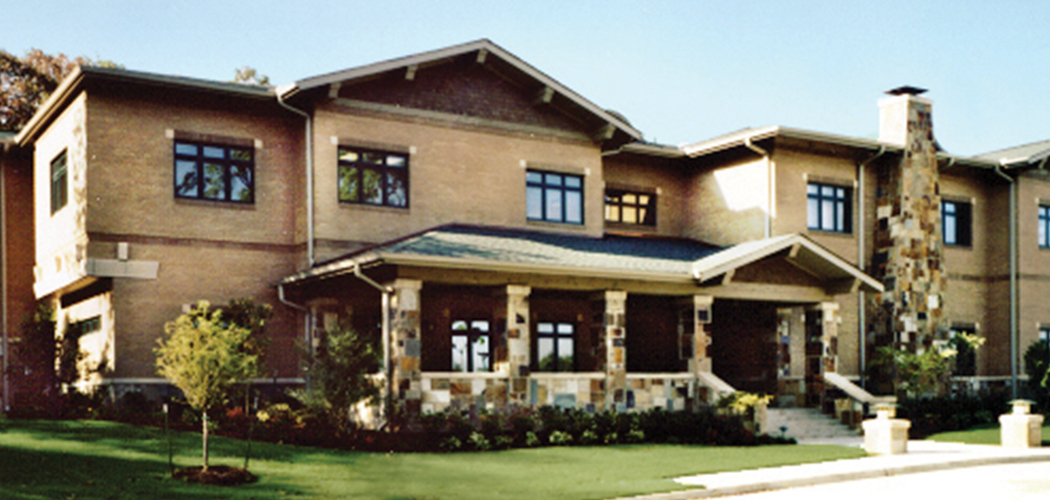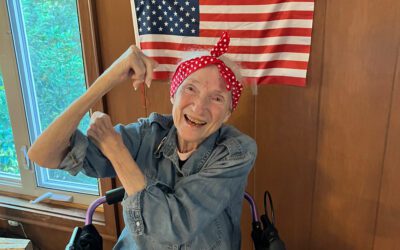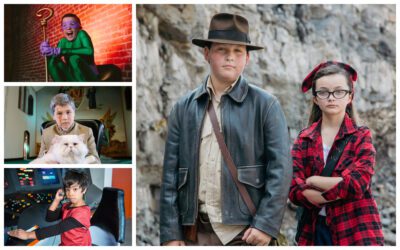[title subtitle=”words: Marla Cantrell
images: courtesy Donald W. Reynolds Cancer Support House”][/title]
It is raining today, so much so that traffic has slowed on Rogers Avenue in Fort Smith, Arkansas. Cars splash along the major thoroughfare, and a man with a red umbrella sprints across the roadway headed for the coffee at Sweet Bay, just across the street from Creekmore Park. Nearby, at the Donald W. Reynolds Cancer Support House, Susan Steffans, the executive director, and Angie Clegg, the director of operations, sit in the dining room, discussing the agency’s mission to help cancer patients and their families—all free of charge.
It is remarkable to consider that this agency runs entirely on grants, private donations, and fundraisers, and has a yearly budget of $480,000. It is the largest free-standing cancer support facility in the United States. (Many others are within major medical facilities.) Thirteen counties in Arkansas and Oklahoma are served by the agency, all with a staff of only five, along with forty to fifty regular volunteers. When their big events take place, like the Survivors’ Challenge 5 and 10 K, and the Wine & Roses fundraiser, the number of volunteers rises exponentially.
Right now, Susan and Angie are discussing the strides they made in 2014. Thirteen specialized support groups met weekly, including one for caregivers and one that met through Facebook, since those members were young women who were extremely busy with work and family.
Because the staff is constantly listening to what their clients need, they are reevaluating their children’s support groups. “Our surveys show they want activity-based programs, like arts and crafts and field trips,” Susan says. “They usually come here at five or six, when they get in school. We make connections with counselors at schools.”
“They want to know who the other kids are, that they’re not the only one,” Angie adds. “We have two groups. One is called Super Survivors, and those are the kids who are fighting cancer. And then we have a group called Climb, which is Children Living in Moments of Bravery, and that’s for kids with a parent or grandparent or caregiver who’s going through treatment.”
These support groups are what most of us think about when we hear others talking about the Cancer Support House. But that’s just a fraction of what they do. When someone is diagnosed with cancer, their entire life can be upended. Money issues can come into play. If a patient is taking chemo and losing their hair, they need wigs and turbans and scarves. If they’re nauseous from treatments, they may only be able to keep down nutritional drinks.
Because of that, they offer a wide range of services, from educational programs to gas cards and bus passes.
Part of what makes it work is the partnerships they’ve formed with companies, such as those that donate bras, wigs, medical supplies, and nutritional drinks. There are local churches that house those who have to travel to Fort Smith for treatment. The University of Arkansas – Fort Smith is a longtime supporter, and the Cancer Support House has a close association with Mercy, Sparks Health System, and Cooper Clinic. Local doctors teach seminars, and The Community Clearinghouse helps provide food for clients. The Academy of Salon and Spa professionally cleans and styles the wigs. And individuals volunteer, doing everything from teaching Tai Chi classes to overseeing art classes.
On this day, the house is relatively quiet. One of their newest support group members, Amy Baker, has stopped by. In the beginning of January, Amy went to see her doctor. She had swollen lymph nodes in her neck. Antibiotics didn’t work, and she didn’t have the flu, so the swelling was a big concern. Her doctor acted quickly. Not long after, she had a biopsy, and after that, a diagnosis. Amy had lymphoma.
Things seemed to be moving rapidly, and Amy, who’s thirty-five, was glad that they did. “I didn’t have time to get used to it, so it was really pretty good,” Amy says. “It was tomorrow I’m getting this done. In two days I’m getting this done. In three weeks we’re starting chemo. I consider it lucky that it happened so fast.
“My father had multiple myeloma. He was diagnosed about ten years ago. Sometimes, seeing someone else go through it makes you realize that your road is a lot easier. He’s doing great right now.
“My doctor told me about the Support House and within about two weeks I came to see what was going on here. I had some friends who knew about this house and donated to it. They said, ‘It’s beautiful and wonderful and everybody is so helpful. You have to go.’ My mother came with me. I filled out paperwork, they gave me a tour. It’s a beautiful, comforting place. It helps to come to a place like this when you’re feeling completely out of character.”
Amy, who has a quick smile and gorgeous eyes, touches the middle of her back with her thumb. “I used to have hair that came to here,” she says. “It was really thick. The first time I went to my support group, they told me, ‘Trust me, you’re going to want to shave it off when it starts coming out because it physically hurts when it’s dead and dying and coming out.’ Nobody really wants to do that. You want to hold on. But a few days later I’d taken a shower and I was brushing my hair after and it was coming out.
“I called here and they told me to come on over, I didn’t need an appointment, and they buzzed my hair off. They helped me find a wig. Some people want to look the same when they walk out. I said, ‘Let’s go crazy. Let’s do something completely different.’ I hadn’t had short hair since I was in elementary school. There was a huge assortment of turbans and scarves and wigs, and you get to play and have fun and discover a new you. For a traumatic experience, it was turned into fun. I came in quite anxious because I was losing what I deemed as a very big part of my femininity and I left with a whole new perspective on me.
“A friend of mine is a hairdresser and she volunteered to do it but I chose to come here. It was a big moment in my life. That was the thing I was most mad about when I found out I had cancer. I wanted to leave with a wig, and here I could do it all. I had my mother with me. We were taking pictures. My mom and dad put the photos on Facebook. My younger sister sent me a picture. She had shaved her head in commiseration with me. She said, ‘What do you think, sis?’ I couldn’t believe it.”
Amy touches her hair, which looks so natural it’s hard to call it a wig. It is blond and frames her face perfectly. When she had her head shaved, it was done in the Salon Marvilla, just down the hall. The salon, named for Marvilla Trickett, who was a beloved member of one of the support groups, recently underwent a makeover. There is a chandelier that hangs from the ceiling, plush chairs to sit in, a bright rug.
As Amy tells her story, tears begin to well in Susan’s eyes. She and Angie are so thankful they work in a place that does so much good. They talk about the great and varied needs they see; their youngest client came here at eleven months and the oldest at ninety-two. It takes creativity and compassion to help everyone who comes through these doors, but the staff finds a way to do it.
A big part of keeping the place going depends on fundraisers like the upcoming Wine & Roses gala, which will be held at the Support House on April 25. River City Deli is catering the event, pairing the food with wine. There will be live music, and roses everywhere. If you want to take home a bottle of great wine, there’s a wine auction. Thirteen artists have also donated artwork for auction. Adventure packages are also up for bid, including a Wyoming fishing trip, and a barbeque party for twenty. And this year, for the first time, the Support House is setting up tents outside, so guests can enjoy the spring weather.
Attending Wine & Roses is a wonderful way to support the work that’s being done. But there are other ways to help. A fifty dollar donation buys three gas cards. Fifty dollars helps someone keep their electricity on, or buys five six-packs of nutritional drinks. If you’re looking to make a difference, you can always check out the Support House’s wish list on their website and give something specific. Or you can become a volunteer.
All these things have an impact, they change lives, and they give us a concrete way to show compassion to our neighbors at a time when it matters the most.




